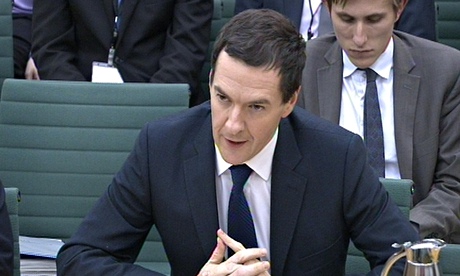
George Osborne has been handed a small early Christmas gift as government borrowing fell in November, bucking a recent run of bad news on the deficit.
Borrowing was £14.1bn last month, £1.6bn lower than in November 2013 and less than the £15bn predicted by economists. The public purse was boosted by higher tax receipts and a £1.1bn windfall from bank fines, according to the update from the Office for National Statistics.
It meant borrowing in the fiscal year so far since April was £75.8bn, £500m less than at the same point last year.
Economists said the chancellor was facing an uphill struggle to meet his deficit target for 2014-15 set by the Treasury’s independent forecaster, the Office for Budget Responsibility. At the time of the autumn statement on 3 December it revised up the figure for full-year borrowing by £5bn to £91.3bn, but tax receipts would have to improve rapidly in the next few months to hit that target. Borrowing in 2013-14 was £97.5bn.
Samuel Tombs, senior UK economist at Capital Economics, said: “While the latest public finance figures showed that the trend in borrowing has finally begun to improve, the pace at which the deficit is falling remains disappointingly slow given the strength of the economic recovery.
“While November’s public finance figures are a step in the right direction, the road to fiscal sustainability looks set to be long and bumpy.”
The Institute for Fiscal Studies, which scrutinises the government’s tax and spending plans, said that in order to meet the OBR’s target, borrowing in the final four months of the fiscal year will have to be 26% lower than in the same months last year.
The chancellor has been under pressure in recent months as government borrowing repeatedly came in above expectations – despite a programme of sweeping spending cuts – partly because weak wage growth has limited income tax revenues.
In November the public purse was boosted by £45.3bn of tax receipts, a £2.4bn increase compared with a year earlier. Income tax revenues were up £400m at £10.9bn, and VAT was up £300m at £10.4bn.
A spokeswoman for the Treasury said: “It is encouraging that today’s figures show borrowing for the month is lower than last year, due to stronger receipts.
“However, the effects of the great recession are still being felt in our economy and the public finances. That’s why we will continue working through the plan that is building a resilient British economy.”
The national debt pile continued to rise in November, by £90bn to £1.46tn, or 79.5% of gross domestic product.

